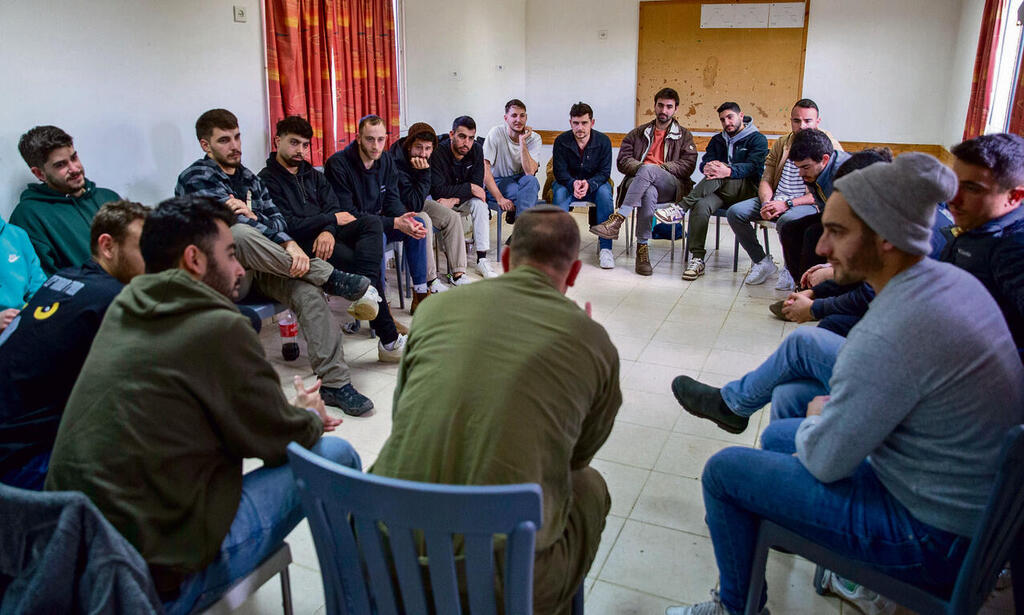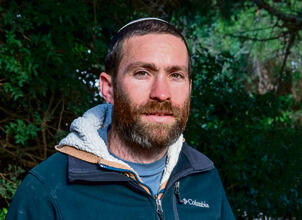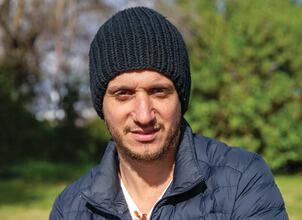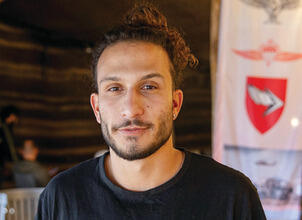Getting your Trinity Audio player ready...
Just a week ago, reservists from the patrol battalion of the 55th Division were still operating in Khan Younis in southern Gaza. Now they are back in civilian life without weapons, without military shoes and without helmets on their heads, but reunited in their respective teams in classrooms in Kfar Etzion. They gather to talk about what happened, to tell each other what they experienced, and to learn how to get out of Gaza, physically and mentally. The IDF has improved over time its ability to tackle trauma and alleviate any emotional challenges its soldiers are facing after intense fighting.
Read more:
Some 25 combat teams are going through a workshop called "Processing Combat Experiences," a program for combat soldiers who need to process what they experienced in war led by the IDF Personnel Directorate, in cooperation with the Momentum Foundation. The program operates at the department level, led by the commanders, and provides tools for dealing with incidents alongside personal development and increasing motivation to continue their service.
From the beginning of the fighting, the program adapted to changing circumstances with cooperation between the IDF Behavioral Science Department and the ground forces. "Every military unit that comes out of combat gets a session of a few hours or a few days of processing what happened," explains Lieutenant Colonel Nir Sagi, 46, director of the Resilience Center, "The goal is to finish combat and process specific experiences. The most important thing is looking ahead. The army drew lessons from the Second Lebanon War and Operation Protective Edge. People are not only injured in the body, but also in the soul."
4 View gallery


Workshops for reservists that need to process the fighting in Gaza
(Photo: Amit Shabi)
Sagi recounts that even during the fighting itself, a battalion commander radioed him and told him that his soldiers would have to undergo treatment. "Four hours is not enough," said the battalion commander, "If I spend two days taking care of a tank, won't I spend at least a day to take care of the soul of my soldiers?"
Sleep without shoes
In one of the rooms sits a younger team, most of them students who were called to war on October 7. They lost a teammate while fighting in Khan Younis. The emotional guide asks each one individually what they would like to leave behind in Gaza. One by one they answer the question: "the guilt," "not to sleep with shoes on," "the aggression," "to turn off the mind," "the impatience," "the vigilance."
The IDF has definitely placed a major emphasis on the mental state of its soldiers during the current war. The treatment doesn't resemble anything that was previously done in the IDF. "Mental health's role in strengthening resilience was felt very much in combat," explains Major Dr. Yan Schreibman, 42, the Mental Health Officer of the 55th Division. "I hope that what is going on here will make a difference in the future in the field of mental health."
Yedidia Eisenthal,32, a reservist in the division's Orev Platoon, talks about the gap between the IDF then and the IDF of today, as his father who fought in the Yom Kippur War told him.
"My father was a tank driver then," he says. "After the war they were given notebooks to write about it and get it out of their system. Beyond that, they did nothing, and people carried traumas. I am a social worker, so I understand the meaning of talking so that there is no trauma. The army has learned to be aware of this."
Eisenthal says that from the first entry into Gaza his team experienced difficult incidents. "We took sniper fire, bullets overhead," he recalled. "We treated the wounded of another team that stepped on an IED, there was also a casualty, we were shot at in the process. It will take time to return home."
Yoni Asraf, 39, a reservist in the patrol platoon of an infantry division, who currently lives in Los Angeles, boarded a plane to Israel when the war started. A few days after he landed, he already found himself in pursuit of terrorists in Kfar Aza.
"Inside Gaza there is complete darkness at night, There are no streetlights, no lights are on," he recalls. "It's like an apocalyptic movie. There is complete silence between explosions. There is no traffic. It's a dead city. Suddenly you get out of there and see the reality in Israel, there is traffic and there are cafes," he says.
Asraf is sure that the workshops are a move in the right direction. "Lessons have been learned," he says, adding: "we also fought in the Second Lebanon War, and then the conduct was not like it is now. Normally we don't talk about feelings. But when you sit us down like this now, you discover an amazing thing, that you can talk about feelings. Sometimes the conversations are uncomfortable, but there is something to it. There's no shame."
Time out
For Idan Aharon, 24, a reserve soldier in the division's engineering platoon, this was his first time serving reserve duty. "I didn't believe that the war would catch me now," he says. "I thought maybe in the future, when I would be a father. For the first few days in the depths of Khan Younis, I felt like the star of a war movie. Everything you were prepared for in the military service suddenly happens. Take cover, maintain margins. You implement everything.
"I felt a sense of duty together with a fearing for my life. Three soldiers from the battalion fell. Sergeant Major (res.) Jonathan David Deitch from my team was killed in an attack, Liav Atiya and Amri Ben Shahar were killed in another encounter. I saw all the guys crying, and I felt guilty that I couldn't cry. Before the war, I broke up with my girlfriend and I cried like a little child. Not in Gaza."
Aharon says that "this workshop gave closure. Now we have to go back to our lives, and we are not the same person. What I go through now will help me for years to come. Get everything out, don't keep it in your stomach. It's time to let everything come out."
Lieutenant Colonel Dudi Fuchs is the division's organizational consultant in the reserves. "For the past month, we are bringing some of the fighting to a close," he says, "the goals are to preserve the unit's resilience, finish their fighting and prepare them for a return to civilian life. There are people here who return from Khan Younis to the Bar Association. In this war, every soldier that leaves Gaza, goes back somewhere."
Schreibman, the mental health officer of the division, says that today the initial mental treatment is already done in the field. "We made sure that every soldier in the division went through the mental health procedure, a practice of providing mental first aid," he says. "We have a platoon that was in a difficult incident, and right away they did a 'team chat.' The commander gathers the soldiers and talks about the incident and makes rounds about how each soldier dealt with it. The mental health officers taught the officers in the field to do this. Afterward, the soldiers described feelings of confidence in the team that helped them grow and be ready to fight together."





